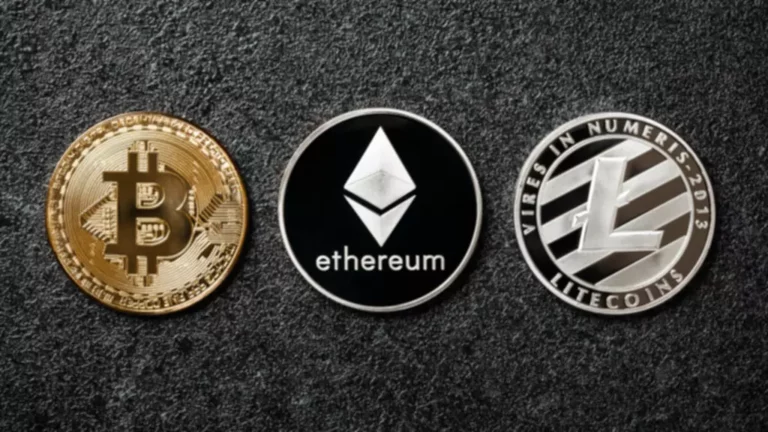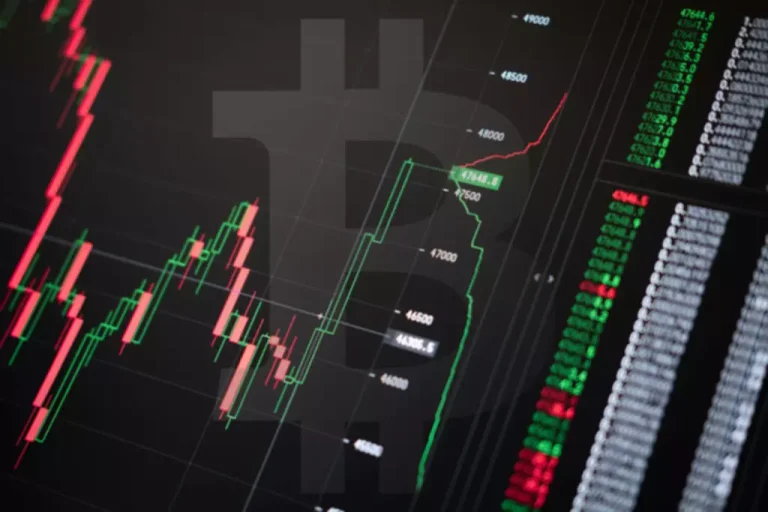Content
This distinction is evident in the different regulatory organizations and regimes put in place to supervise the commodities and securities markets. In general, commodities are subject to less stringent oversight by the CFTC, while securities are required to meet the stricter regulatory and enforcement policies of the SEC. This case resulted difference between security and commodity in a list of criteria—known as the Howey Test—to determine whether instruments should be regulated as a security.
What is the approximate value of your cash savings and other investments?

Securities serve as attractive instruments for both investment and speculation. From a long-term investment perspective, securities such as stocks and bonds offer returns through capital appreciation and income generation. The Crypto as a https://www.xcritical.com/ Security argument revolves largely around Initial Coin Offerings (ICOs), where tokens are sold to raise funds for projects. The SEC regulates securities to protect investors, leading to debates about whether ICOs fall under its purview. Regulatory bodies like the US Commodity Futures Trading Commission (CFTC) often view stablecoins as Commodities, subjecting them to Commodities regulations. Stablecoins play a vital role in Cryptocurrency ecosystems, bridging the gap between traditional finance and digital assets while providing stability and liquidity for traders and investors.

Global perspectives on Crypto regulation
There is no one-size-fits-all answer for cryptocurrencies since there are several types of tokens; depending on the nature of the blockchain and token, they may or may not pass the Howey Test. For example, buying a security token to invest in an STO qualifies as an investment of money. But earning those shares by working in a startup and contributing only Smart contract your time and expertise doesn’t qualify as an investment of money. A commodity can become a security if it meets the definition of an investment contract under the Howey Test. When you buy a bond, you agree to let the bond issuer use your money for a certain period.
How comfortable are you with investing?
Balancing innovation and risk mitigation requires collaborative efforts among regulators, industry members, and policymakers to develop adaptable regulatory frameworks. However, if marketed with promises of future returns, they may fall under Securities laws, warranting regulatory scrutiny. Cryptocurrencies, like Bitcoin and Ethereum, possess traits akin to Commodities. They’re tradable assets, lack legal tender status, and operate in decentralised networks.
These assets can provide the highest gains, but if they go wrong, you can quickly lose your entire investment. A security is a financial instrument that represents an ownership position, a creditor relationship, or rights to ownership. In this article, we discuss commodities and securities, their differences, and how they relate to cryptocurrencies. We also go into details about the Howey Test, a set of criteria used to determine whether an asset is a security. Commodities can serve as the underlying asset for derivatives such as futures and options. Futures establish an obligation to buy or sell a commodity at a set price and date in the future, while options provide holders with the right (but not the obligation) to buy or sell the commodity.
The sale and purchase of commodities are usually carried out through futures contracts on exchanges that standardize the quantity and minimum quality of the commodity being traded. For example, the Chicago Board of Trade (CBOT) stipulates that one wheat contract is for 5,000 bushels and states what grades of wheat can be used to satisfy the contract. Funded Futures Network provides traders with capital, education, and tools to succeed in futures trading without risking their own funds. Commodity derivatives are financial contracts, such as futures or options, that derive their value from the price of an underlying commodity. They allow traders to speculate on price changes or hedge against price volatility. While both are tradable assets, they represent entirely different markets.
- Our work has been directly cited by organizations including Entrepreneur, Business Insider, Investopedia, Forbes, CNBC, and many others.
- These traders never intend to make or take delivery of the actual commodity when the futures contract expires.
- In the U.S., the Securities and Exchange Commission (SEC) regulates the buying and selling of instruments that meet the criteria to be classified as securities.
- As crypto has characteristics resembling both sets of assets, it isn’t easy to ascertain them in a single category.
- Examples of commodities include barrels of oils, bushels of wheat, or megawatt-hours of electricity.
On the other hand, security is a tradable financial instrument with monetary value. For example, the wheat farmer who plants a crop can hedge against the risk of losing money if the price of wheat falls before the crop is harvested. The farmer can sell wheat futures contracts when the crop is planted and have a guaranteed, predetermined price for the wheat when it is harvested. The first are buyers and producers of commodities that use commodity futures contracts for the hedging purposes for which they were originally intended. These traders make or take delivery of the actual commodity when the futures contract expires.
Value investors seek undervalued securities with strong fundamentals, aiming for long-term capital appreciation. Equities represent ownership interests in a company and are typically traded in the form of common stocks or preferred stocks. Shareholders of equities have a claim on a portion of a company’s assets and earnings. They also have unlimited potential for capital appreciation, whereas the returns on debt securities are capped at the interest rate. Residual securities have the lowest claim on a company’s assets and earnings, making them riskier than other securities like debt or preferred stocks. They are generally riskier than debt, hybrid, and preferred securities but offer greater potential returns.
Cobalt is an essential mineral that goes into smartphones and similar devices. However, declining demand for these products can lead to lower cobalt prices. Consumer preferences and weather changes are two of the many factors that impact commodity prices. For instance, a drought can reduce the supply of water, livestock and crops. A higher supply of these resources can decrease prices, but rising demand for certain livestock and crops can compensate for a supply increase.

These could range from oil and natural gas to wheat, corn, or precious metals like gold or silver. PrimeXBT (PTY) LTD is an authorized financial services provider in South Africa with license number having its registered address at 180 Lancaster Road, Gordons Bay, Western Cape, 7140, South Africa. The future regulatory landscape for Crypto is poised for evolution, navigating jurisdictional complexities, investor protection, and technological advancements. Cryptocurrency regulation faces jurisdictional complexities, classification uncertainties, and the challenge of investor protection. Compliance burdens, technology adaptation, and global reach further complicate oversight.
Fungibility ensures shares with identical characteristics and value are easily be interchanged without losing their integrity or value. As per the fungible definition, securities, debts, material items are considered as fungible goods. There are different forms of crowdfunding, e.g. equity crowdfunding, where investors receive shares in the company, or debt crowdfunding, where investors lend money directly to the start-up. These scenarios represent common ways for companies to raise capital and expand their businesses in India. Stock issuing, whether through an IPO, FPO, or ADS offering, is a popular method for companies to access funding from investors. The success of these offerings, as indicated by the subscription amounts and total amount raised, can help companies achieve their growth objectives and drive value for shareholders.
If tokens offered meet Howey Test criteria, they may be subject to securities regulations, including registration requirements. The test ensures regulatory oversight in the Crypto space, determining compliance with laws and protecting investors while promoting market integrity. Equities are riskier than debt securities but offer potentially higher returns. Hybrid securities combine elements of both equities and debt, while the other security types listed pertain to the way securities are issued, transferred, or regulated. Equities are preferred by investors seeking capital appreciation and growth.
Commodity prices are sensitive to factors such as weather, geopolitical events, and changes in supply and demand dynamics. A security, on the other hand, is a financial instrument that holds monetary value. It represents an ownership position in a publicly-traded corporation (stock), a creditor relationship with a governmental body or a corporation (bond). In conclusion, navigating the Crypto landscape requires clear regulatory guidance to address jurisdictional complexities and investor protection.
These basic grades are designed to ensure that it is a homogenous product across various markets, further emphasizing the fungible nature of commodities. When they are traded on an exchange, commodities must also meet specific minimum standards, known as basic grades. A Security generally gives you a stake in a certain asset – usually a company. Decentralisation in Cryptocurrencies challenges traditional regulatory frameworks, enabling regulatory evasion.
Restricted securities differ from other types of securities primarily due to the limitations placed on their sale or transfer. They have a more limited market and are less liquid due to the restrictions on their transfer. Since it has features that are both a commodity and a security, depending on the nature of investment and returns, a Bitcoin can be a commodity and a security.
